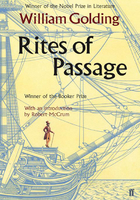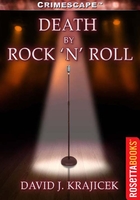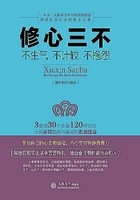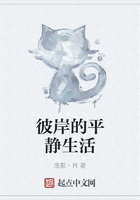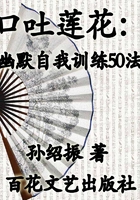The return of spring also brought the return of tourists to the city, and that brought in its wake the usual mess, just as the migration of wildebeest lures the jackals and hyenas. The Romanians with the die hidden under one of three cups appeared on the tops of bridges, from which their sentries could watch for the arrival of the police. The vu cumprà fished into their capacious hold-alls and produced the new models just launched by the designer bag-makers. And both the Carabinieri and the Polizia Municipale handed endless copies of the proper forms to the people who had had their pockets or purses picked. Springtime in Venice.
Late one afternoon, Brunetti stopped by Signorina Elettra's office, but she was not at her desk. He had hoped to have a word with the Vice-Questore, but when he saw that the door to Patta's office was open, Brunetti came to the conclusion that they had both decided to leave for the day. In Patta's case, this was only to be expected, but Signorina Elettra, since this was the day when she did not arrive until after lunch, usually stayed until at least seven.
He was about to retreat from her room and take the papers he had brought with him back up to his own office, when the impulse to be certain forced him nearer to the door to Patta's office. He was surprised to hear Signorina Elettra speaking English very slowly and enunciating every word as if for the benefit of the hearing impaired, saying, 'May I have some strawberry jam with my scones, please?'
After a longish pause, this was followed by Patta's voice, saying, 'May E ev som strubbry cham per mio sgonzes, pliz?'
'Does this bus go to Hammersmith?'
And on it went, through four phrases of dubious utility until Brunetti heard, once again, the pained request for strawberry jam. Fearing he might be there some time, he went back to the door to her office and knocked loudly, calling out, 'Signorina Elettra, are you there?'
Within seconds she appeared at Patta's doorway, a look of stunned relief illuminating her face, as though Brunetti's voice had just pulled her from quicksand. 'Ah, Commissario,' she said, 'I was just about to call you.' Her voice caressed every syllable of the Italian, as though she were Francesca, the language her Paolo, and this her last chance to speak their love.
'I'd like to have a word with the Vice-Questore, if that's possible,' he said.
'Ah, yes,' she said, stepping clear of Patta's door. 'He's free at the moment.'
Brunetti excused himself and walked past her. Patta sat at his desk, elbows propped on the surface, chin cupped in his palms, as he studied the book in front of him. Brunetti approached and, glancing down, recognized the photo of Tower Bridge on the left-hand page, the black-hatted Beefeater on the right. 'Mi scusi, Dottore,' he said, careful to speak softly and enunciate clearly.
Patta's eyes drifted towards Brunetti and he said, 'Sì?'
'I wondered if I might have a word with you, sir?' Brunetti said.
With a slow motion full of resignation, Patta shut the book and moved it to one side. 'Yes? Have a seat, Brunetti. What is it?'
Brunetti did as he was told, careful to keep his eyes away from the book, though it was impossible not to notice the Union Jack waving across the cover. 'It's about the juveniles, sir,' Brunetti said.
It took Patta some time to cross the Channel and return to his desk, but he eventually responded. 'What juveniles?'
'The ones we keep arresting, sir.'
'Ah,' Patta said, 'those juveniles.' Brunetti watched his superior trying to recall the documents or arrest reports that had passed his desk in recent weeks, and saw him fail.
Patta straightened himself in his chair and asked, 'There's a directive from the Ministry, isn't there?'
Brunetti refused the temptation to answer that there was a directive from the Ministry prescribing the number of buttons on the officers' uniform jackets and, instead, said, 'Yes, sir, there is.'
'Then those are the orders we have to follow, Brunetti.' He thought Patta would be content to leave it at that, given that it was so close to the time he usually went home, but something drove Patta to add, 'I think we've had this conversation before. It is your duty to enforce the law, not to question it.'
Nothing in his statement, or in his manner, Brunetti knew, had suggested any questioning or desire to question the law. Yet from force of habit, habit worn deep by years of exposure to his subordinate, Patta had but to hear Brunetti mention a regulation in order to hear some phantom voice rise up in criticism or doubt.
Patta's comment pressed Brunetti into the role of troublemaker. 'Mine is more a procedural question, sir.'
'Yes? What?' Patta asked with some surprise.
'It's about these juveniles, as I said, sir. Each time we arrest them, we take their photos.'
'I know that,' interrupted Patta. 'It's part of the orders in the directive.'
'Exactly,' Brunetti said with a smile he realized more clearly resembled that of a shark than that of a dutiful subordinate.
'Then what is it?' Patta said with a glance at his watch he made neither swift nor covert.
'We're in some uncertainty about how to list them, sir.'
'I don't follow you, Brunetti.'
'The directive says we're to catalogue them according to age, sir.'
'I know that,' said Patta, who probably did not.
'But each time they're arrested and photographed, they give us a different name and a different age, and then a different parent comes to collect them and brings a different piece of identification.' Patta started to speak, but Brunetti rolled right over him. 'So what we wondered, sir, was whether we should list them under the age they give, or under the name, or perhaps according to their photo.' He paused, watching Patta's confusion, then said, 'Perhaps we could institute some system of filing them by photo, sir.'
He saw Patta draw himself up, but before the Vice-Questore could answer, Brunetti thought of one case his officers had complained about that morning, and said, 'There's one we've arrested six times in the last ten days, and each time we have the same photo, sir, but we've got …' he looked down at the papers he had intended to give Signorina Elettra, which had nothing at all to do with the young man he was talking about, and said, 'six different names and four different ages.' He looked up and gave his most subservient smile. 'So we were hoping you could tell us where to file him.'
If he had expected, or hoped, to goad Patta to anger, Brunetti failed. The closest he got was for the Vice-Questore to drop his chin into one hand, stare at Brunetti for almost a minute, and then say, 'There are times when you try my patience, Commissario.' He got to his feet. 'I've got a meeting now,' he said.
Graceful and sleek as an otter, Patta never failed to impress Brunetti with his appearance of power and competence, and so it was now. He ran a hand through his still-thick silvering hair and went to the armadio against the wall, from which he removed a light topcoat. He drew a white silk scarf from one of the sleeves and wrapped it around his neck, then put the coat on. He went to the door of his office and turned back to Brunetti, who still sat in front of his superior's desk. 'As I said, the rules are spelled out in the directive from the Ministry, Commissario.' And he was gone.
Curiosity led Brunetti to lean forward and pick up Patta's book; he flipped through the pages. He saw the usual photos of boy meeting girl, girl meeting boy, then noted how carefully they took turns asking where the other came from and how many people were in their families, before the boy asked the girl if she would like to go and have a cup of tea with him. Brunetti dropped the book back on Patta's desk.
Outside, Signorina Elettra sat at her desk. Sufficient time had passed for her to have returned to some semblance of serenity. 'Does this bus go to Hammersmith?' Brunetti asked in English, straight faced.
Signorina Elettra's expression quit the world of Dante and turned to scripture: her face could have been that of the fleeing Eve on any one of a number of medieval frescos. Ignoring his English, she responded in Veneziano, a language she seldom used with him. 'This bus will take you straight to remengo if you're not careful, Dottore.'
Where was remengo, Brunetti wondered? Like most Venetians, he had been told to go there and had been telling people to go there for decades, yet he had never paused to consider whether it was reachable by foot or boat or, in this case, bus. And was it a place like a city, meant to be written with a capital letter, or a more theoretical location like desperation or the devil and thus reachable only by means of imprecation?
'… can't bring myself to be the one to tell him it's hopeless.' Signorina Elettra's words brought him back to the present.
'But you're still giving him English lessons?'
'I used to be able to resist him,' she said. 'But then he became vulnerable when I knew he was going to be rejected and he thought there was still a chance, and now I can't keep myself from trying to help.' She shook her head at the madness of it.
'Even though you know there's no hope he'll get the job?'
She shrugged and repeated, 'Even though I know there's no hope he'll get the job. Everything was fine until I saw his weakness – how much he wants this job – it was enough to make him human. Or very close. I closed my eyes for a minute and he slipped beneath my radar.' She tried to shake the thought away but failed.
Brunetti resisted the temptation to ask her how it was that she was so certain the Vice-Questore had no chance at the job, wished her a good evening and, deciding to walk home, turned left rather than right when he left the Questura. The same magic hand that had been poised over the city for a week remained in place, warding off rain and cold and beckoning forward ever milder temperatures. Urged by some secret motion, plants sprang up everywhere. In passing an iron railing, he noticed vines trailing over the top in an attempt to escape into the calle from the garden where they were being kept prisoner. A dog ran past him, followed by another, busy with doggy things. Perched on the wall of an embankment in the increasing chill of the evening were two young men in T-shirts and jeans, a sight which called Brunetti back to his senses, forcing him to button his jacket.
Paola had said something about lamb that morning, and Brunetti started thinking about the many interesting things that could be done to lamb. With rosemary and black olives or with rosemary and hot chilli peppers. And what was that one that Erizzo liked so much: the stew with balsamico and green beans? Or simply white wine and rosemary – and why was it that lamb cried out for rosemary more than any other herb? Following the trail of lamb, Brunetti found himself on the top of the Rialto, gazing south toward Cà Farsetti and the scaffolding that still covered the fa?ade of the university down at the bend, the buildings softened by the evening light. Look at those palazzi, he told some silent audience of non-Venetians. Look at them and tell me who could build them today. Who could come and stack those blocks of marble one on top of the other and have the finished products display such effortless grace?
Look at them, he went on, look at the homes of the Manins, the Bembos, the Dandolos, or look farther down to what the Grimanis and the Contarinis and the Trons built in their names. Look on those things and tell me we did not once know greatness.
A man hurrying across the bridge bumped lightly into Brunetti, excused himself, and ran down the other side. When Brunetti looked back up the canal, the palazzi looked much as they always did, massive and grand, but the magic had dimmed, and now they also looked slightly in need of repair. He walked down the stairs on his side of the bridge and cut along the riva. He didn't want to have to push his way through whatever crowds still lingered near the market or walk the gauntlet of cheap masks and plastic gondolas.
Lamb it was, lamb with balsamic vinegar and green beans. No antipasto and only a salad to follow. This could mean one of a number of things, and as he ate, Brunetti used his professional skills to seek out the possible cause. Either his wife had been so caught up in the reading of some text – Henry James tended to make her most careless about dinner – or she was in a bad mood, but there was no sign of that. Her suitcase was not standing open on their bed, so he excluded the possibility that she was preparing to run off with the butcher, though the lamb would have been more than sufficient inducement for most women. He approached the next course with mounting anticipation and increasing hope: it might involve an explosive dessert, something they had not had for some time.
The detective finished the beans, keeping an eye on the suspects around the table. Whatever it was, the wife and the daughter were in it together. Every so often they exchanged a secret glance, and the girl had trouble disguising her excitement. The boy appeared not to be involved in whatever was going on. He polished off the lamb and ate a slice of bread, looked over at the beans and made no attempt to hide his disappointment that his father had beaten him to them. The woman shot a glance at the boy's plate, and did he detect a smile on her face when she saw that it was empty? The detective glanced away so she would not catch him watching them so closely. To lead them astray, he poured himself a half-glass of Tignanello and said 'Wonderful meal', as if that were the end of it.
The girl looked worried, glanced at the woman, who smiled calmly. The girl got to her feet and stacked the plates. She carried them over to the sink and said, her back to the others, 'Anyone interested in dessert?'
A man kept on short rations at his own table – certainly he was interested in dessert. But he left it to the boy to speak, contenting himself with another sip of wine.
The woman got up and went over to the door leading to the back terrace, the one facing north, where she kept things that wouldn't fit in the refrigerator. But when she heard the girl setting the dishes in the sink, she called her over, and they had a whispered conversation. The detective watched the woman go to the cabinet where the dishes were kept and take down shallow bowls. Not fruit salad, for heaven's sake. And not one of those stupid puddings filled with bread.
The detective picked up the bottle and checked to see what was left. Might as well finish it: it was too good to leave uncorked overnight.
The woman came back with four tiny glasses, and things began to look up. What would be served with sweet wine? No sooner had he begun to hope than realism intervened: this might be another attempt to deceive him, and there might be nothing more than almond cookies, but then the girl turned from the door to the terrace and came towards the table with a dark brown oval resting on a plate in front of her. The detective had time to think of Judith, and Salome, when his suspicions were obliterated by three voices calling in unison, 'Chocolate mousse. Chocolate mousse', and he glanced aside just in time to see the woman pull an enormous bowl of whipped cream from the refrigerator.
It wasn't until considerably later that a sated Brunetti and a contented Paola sat together on the sofa, he feeling virtuous at having refused the sweet wine and then the grappa that was offered in its place.
'I had a call from Assunta,' she said, confusing him.
'Assunta who?' he asked, his feet crossed on the low table in front of them.
'Assunta De Cal,' she said.
'Whatever for?' he asked. Then he remembered that it was in her father's fornace that the glass panels had been made and wondered if Paola wanted to see more of the artist's work.
'She's worried about her father.'
Brunetti was tempted to inquire what his involvement in that might be but asked only, 'Worried about what?'
'She said he's getting more and more violent towards her husband.'
'Violent violent or talk violent?'
'So far, only talk violent, but she's worried – Guido, I really think she is – that the old man will do something.'
'Marco's at least thirty years younger than De Cal, isn't he?' When she nodded, Brunetti said, 'Then he can defend himself or he can just run away. Walk away, from what I remember of the old man.'
'It's not that,' Paola said.
'Then what is it?' he asked kindly.
'She's afraid that her father will get in trouble by doing something to him. By hitting him or, oh, I don't know. She says she's never seen him so angry, not ever in her life, and she doesn't know why he is.'
'What sort of things does he say?' Brunetti asked, knowing from experience that the violent often announce their intentions, sometimes in the hope that they will be prevented from carrying them out.
'That Ribetti's a troublemaker and that he married her for her money and to get his hands on the fornace. But he says that only when he's drunk, Assunta said, about the fornace.'
'Who in their right mind would want to take over a fornace in Murano these days?' Brunetti asked in an exasperated voice. 'Especially someone who has no experience of glass-making?'
'I don't know.'
'Why did she call you, then?'
'To ask if she could come and talk to you,' Paola said, sounding faintly nervous about passing on the request.
'Of course, she can come,' Brunetti said and patted her thigh.
'You'll be nice to her?' Paola asked.
'Yes, Paola,' he said, leaning over to kiss her on the cheek. 'I'll be nice to her.'

